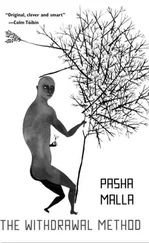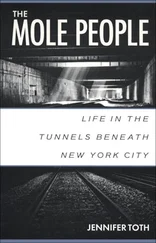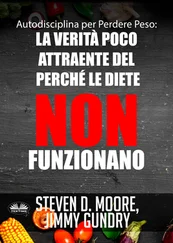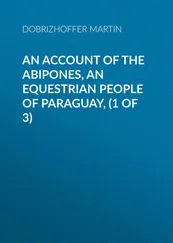Sir, if your papers aren’t in order there’s nothing I can do.
Our child disappears and no one will help us, and look at my little girl — Kellogg would gesture at Elsie-Anne, an ammonial scent sifting from beneath the Islandwear sweatshirt.
But the Helper would be heartless: You’re not boarding this train.
Pushed to the brink, Kellogg would grab the guy by the throat, Helpers would collapse upon him, he would shatter windpipes and sternums and storm off into the city with his daughter in his arms to find his missing son. . What drama! That was more like it.
He felt a hand on his back. Θir, said a lean, whiskery Helper, let’θ go, move ahead.
Way down the tracks, a train was rounding the bend from Bay Junction. Kellogg apologized, took his daughter’s hand, did as he was told.
When Familiar comes back we’ll go to Viperville, she told him.
We will?
Not you. Just me and Familiar. Then we’ll be together forever, she said.
Kellogg stroked her cheek. Shush now, the train’s coming.
Forever, Dad. Forever and ever and ever.
 HE TEMPLE DOOR was open, Olpert stepped inside, called hello, sensed the word drift through the Chambers like a loopily thrown paperplane, skidding uncaught onto the dais of the Great Hall.
HE TEMPLE DOOR was open, Olpert stepped inside, called hello, sensed the word drift through the Chambers like a loopily thrown paperplane, skidding uncaught onto the dais of the Great Hall.
A flick of the lightswitch achieved nothing. Slowly the foyer came into view. Shards of the smashed Hair Jar gleamed within its furry contents, Olpert’s own orange leg hair would be somewhere among them. Solid black rectangles had been painted over the foyer’s twin windows — from inside. Cast in shadows, the place had that amplified stillness that prevails after destruction, phantasmal, absence so palpable it becomes present. Olpert ushered Gip in from the chortling floodwaters and closed the door.
The library was trashed. One of the recliners had been sliced open, foam frothed from the wound. The shelves had been emptied, strewn everywhere were dozens of defaced (pages torn out, covers ripped to strips) editions of How We Do . Olpert picked one up, flipped through. The pages were blank. He tried another. Empty. He’d seen men writing and reading feverishly in here, had they been faking? But then he shivered: the words might somehow, amid everything, have been erased.
Gip called, Someone made a mess in here.
Olpert discovered the boy in the kitchen. The cupboards had been dumped out, a split tin of corn-in-a-can dribbled mucous all over the counter. Various other foodstuffs littered the room: a confetti of cereal and rice, various energy-drink powders in neon trails and sprinklings, anthills of coffee grounds, what Olpert hoped was chocolate pudding piled beside the upended trashbin.
In their furs Olpert and Gip moved into the Great Hall. The pews were upturned, the Original Gregories’ portraits hauled from the walls or spraypainted black, or both, and the faintly marine odour of urine hung stale and salty in the air. By the Citycard cache Olpert discovered his grandfather’s picture torn in two, the old man’s halved visage seemed to glare at him even now with disappointment: Where were you to save me, boy?
But of course he’d never been able to save him.
During its innocuous initial stages, his grandfather’s illness had been a relief. Instead of attending that week’s NFLM meeting, they’d watched a Y’s game on TV. The old man shivered under blankets and turned his head occasionally to hawk clots of black guck into a shopping bag. Something viral in the chest, a break from routine and nothing more. Two weeks later, Olpert was visiting Gregory in hospital, and then two months after that interring him in the Mustela Necropolis, the headstone emblazoned with the NFLM crest and the title GRANDMASTER AND CO-FOUNDER in a reverential-looking font. After the funeral, Favours had laid a claw of a hand on Olpert’s shoulder and wheezed, You’ve got a lot to live up to, carrothead.
From the recesses of the Temple came a weak voice: Is someone there? Please, aidance, please, I’m subterrained, please.
The portal was open, the ramp sloped down into shadows.
Olpert took a Citycard from one of the hooks. Listened.
Gip appeared. There’s someone downstairs, he said.
I know, said Olpert.
Well we can’t just leave him, how we did the other man, the one with the thing on his eyes.
No, said Olpert. You’re right. We can’t.
They descended into blackness. As the ramp levelled off the basement trembled with brownish light. The conference table was underwater, chairs afloat. Deeper in the Chambers the generator hummed faintly.
Hello? cried the voice. Is someone there?
Wait here, Olpert told Gip, rolled up his fur pants, and waded in. Around the corner, cell lit with a guttering yellow lamp, there he was. Pop surveyed Olpert with ambivalence.
So you’ve retailed for me, said Pop. Was it guilt? I envisaged as such.
I didn’t, said Olpert. I’m not really one of them.
A likewise story. And what now, evil one?
Now I’m going to let you out.
With the Citycard Olpert swiped the security box. The door slid open.
At last, justification, said Pop. Yet how estranged it feels to be rescued by an evil one! I’m aligned onto the side of the behooded revolutionaires. Still they left me. You all left me. And only now you enfeign restribution.
Olpert said nothing, led Pop to the ramp, collected Gip, and headed up into the Temple, past his grandfather’s halved portrait, and outside. Water, seeping in blackly from the west, hid the cobblestones of Knock Street.
We can’t drive in this, said Olpert.
Ah, but evil one, said Pop, if only you’d not abscondered my watercraft!
Your houseboat, said Olpert. They took it to the dump.
They? Pop eyed him. Are you, evil one, not one of them? Or not?
No. I’m not. It’s complicated but I’m not. It’s just me and the boy —
Not?
No.
How do you know?
That I’m not one of them?
Where I might find my boat.
Olpert gestured at Gip. I want to get this boy to his parents.
If we get to my boat, I can transpose him to safety.
You can.
I can, said Pop, puffing out his chest. With absolutesimal certainty, yes.

THE MORE I talk to you, Mrs. Mayor, the more convinced I am that you are very intelligent.
Oh, well gee. How kind.
I’ve made a decision, with your help: from this time on, I’ll. . I’ll. . what? What will I do? I’ll try to look at people differently. With more kindness. Maybe. But after all I still have my illustrations to do. So I’ll do them, but with a little more kindness.
What about my people.
Do you mean the people, Mrs. Mayor?
Yes, of course, the people. The people of this city.
I’d say they’re all going under save me and you.
What do you mean, going under.
What do I mean? What does one ever mean ?
This is hell. I’m in hell.
Hell, Mrs. Mayor?
What was the point of all this? This — this show ?
Oh, nothing, Mrs. Mayor, but to delight the mind. And to let everyone see what magic can perform. But you say you find yourself in hell? Where hell is, I’d suggest, is where you’ll ever be. Aren’t all places not heaven in some way hell? Doesn’t knowing there is some other paradise make this a hellish reality? But don’t little glimpses — illustrations — of that paradise give us hope?
What do you mean?
That question again! I mean perhaps, Mrs. Mayor, only when you cease to be will you find yourself anywhere else. And yet can you not find glimpses of heaven here on earth? What’s happening up there on your city’s streets, say. Is there any other truth than that?
Читать дальше
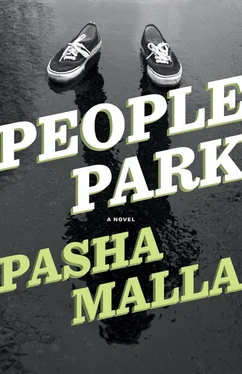
 HE TEMPLE DOOR was open, Olpert stepped inside, called hello, sensed the word drift through the Chambers like a loopily thrown paperplane, skidding uncaught onto the dais of the Great Hall.
HE TEMPLE DOOR was open, Olpert stepped inside, called hello, sensed the word drift through the Chambers like a loopily thrown paperplane, skidding uncaught onto the dais of the Great Hall.
